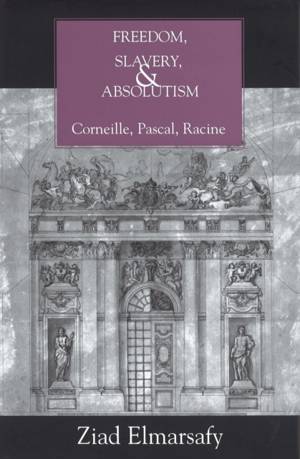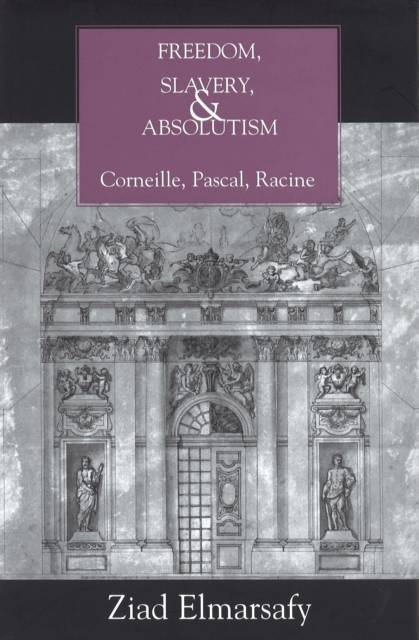
- Afhalen na 1 uur in een winkel met voorraad
- Gratis thuislevering in België vanaf € 30
- Ruim aanbod met 7 miljoen producten
- Afhalen na 1 uur in een winkel met voorraad
- Gratis thuislevering in België vanaf € 30
- Ruim aanbod met 7 miljoen producten
Zoeken
Omschrijving
Ziad Elmarsafy explores the concept of freedom by reading the works of Corneille, Pascal, and Racine as political theories in the guise of literature. Within this framework, a certain model quickly becomes apparent, namely that of absolute sovereignty as the guarantor of freedom. The three writers under consideration share the view that freedom is ensured only by absolute authority rather than the absence of such authority. From Corneille, who modulates freedom through an erotic link to the monarch as a means through which the glorious individual is brought into the state's fold, to Pascal, who traces the liberation of the will via absolute submission to God, to Racine, for whom absolute submission to the most Christian king is the only route to political and personal salvation, Elmarsafy studies a politics of taking charge that differs markedly from the contemporary orthodoxy that privileges individual freedom. Historically engaged, incisively argued, and persuasively written, Freedom, Slavery, and Absolutism will appeal to literary scholars, to political theorists and to readers interested in the history of ideas.
Specificaties
Betrokkenen
- Auteur(s):
- Uitgeverij:
Inhoud
- Aantal bladzijden:
- 196
- Taal:
- Engels
- Reeks:
Eigenschappen
- Productcode (EAN):
- 9781611481853
- Verschijningsdatum:
- 1/07/2003
- Uitvoering:
- Hardcover
- Formaat:
- Genaaid
- Afmetingen:
- 168 mm x 243 mm
- Gewicht:
- 476 g

Alleen bij Standaard Boekhandel
+ 184 punten op je klantenkaart van Standaard Boekhandel
Beoordelingen
We publiceren alleen reviews die voldoen aan de voorwaarden voor reviews. Bekijk onze voorwaarden voor reviews.











